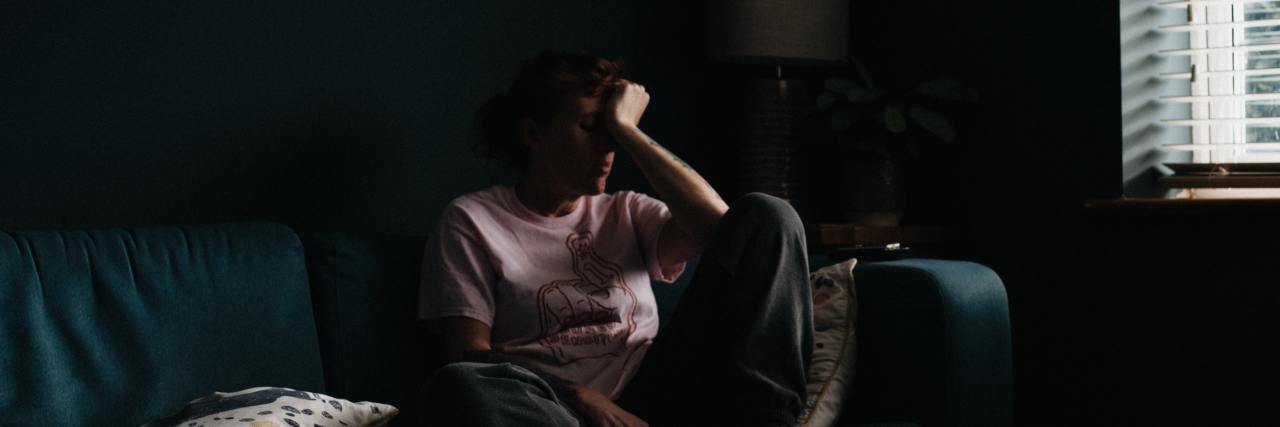I sit with my sister and mom, uncontrollably laughing at some silly thing one of us has said. I’m almost breathless with laughter. I feel warm sitting with them, these two people I love so much. And then a voice enters my head: “They’re going to leave you. You’re going to be all alone.” The voice shocks me back into what I feel at the time is almost certain reality — the people I hold dearest will die or abandon me and I’ll be alone. The warmth evaporates, and I’m left feeling panicked and incredibly sad.
This happens to me quite regularly — that voice that pipes up in my head to remind me that good feelings don’t last; good people don’t stay; everything good will, sooner or later, disappear. The fact that this happens at some of my happiest moments seems like a cruel twist of fate. Even those sweet moments of levity and connection with others can be reshaped into painful realizations that hit me like a sledgehammer.
When I was little, I learned that the world was an unsafe place, that danger could arrive in different forms, at any time. What that taught me was that I needed to be ready for anything in order to survive. Now, as an adult, the only way I feel safe is if I’ve prepared myself for every single worst-case scenario. That’s where that voice comes in. It feels it has to protect me from any potential pain by having me acknowledge and anticipate the worst possible outcome of any situation. It happens particularly when I’m feeling safe or content — that voice wants me to be prepared that all good things must come to an end. So, when they do, I won’t be caught off-guard and I can protect myself.
I recently finished reading Glennon Doyle’s book, “Untamed.” In it, she describes this same type of voice as something called the Ache. The Ache is there to remind her continuously that the world is a dangerous place where people you love don’t live forever. Whenever she gets too close to comfort or love, the Ache pipes up to remind her that good things don’t last. But the Ache also helps her to feel more in control. I relate so much to this dynamic. When I’m ready for the worst, I don’t feel unprepared. I feel like I’ve taken back the reins of my life — like, literally anything could happen, and I wouldn’t feel caught off-guard or surprised because I’ve already imagined it happening in my head.
The problem with the Ache is that it stamps out all of the good, too. It’s like I have to counteract any good experience with something bad (a familiar feeling that’s been there since the beginning of my trauma). It feels like I don’t deserve to feel positive things – and it’s my duty to accept the hurt and pain of the world without any of the light. I don’t want to live like this anymore. I want to hug my mom without worrying about something bad happening to her. I want to laugh with friends and not wonder if a day will come when they won’t want to be around me anymore. I want to prepare myself for different scenarios, but not only focus on the outcome where I’ll be in pain, but also the possibility for positive things. I want to start asking myself, “What if things go well? What if things turn out in the best possible way, instead of the worst?”
My trauma has already taken away so many good things from my life. And that wasn’t my fault. But what is my responsibility is the fact that I continue to keep the Ache in my life as it keeps hurting me unnecessarily. Instead of giving it free rein, maybe I can just thank it for doing its job — protecting me from the unknown — and tell it that it doesn’t have to help me like that anymore. I know within my heart that I’m strong enough to overcome what life throws at me (because I’ve already proven that to myself so many times). So, maybe the Ache can take a backseat when I’m experiencing moments of joy and just let me soak up the positivity and light. Because I know, deep down, that I deserve good things even if the Ache tells me otherwise.
Photo by Annie Spratt on Unsplash

